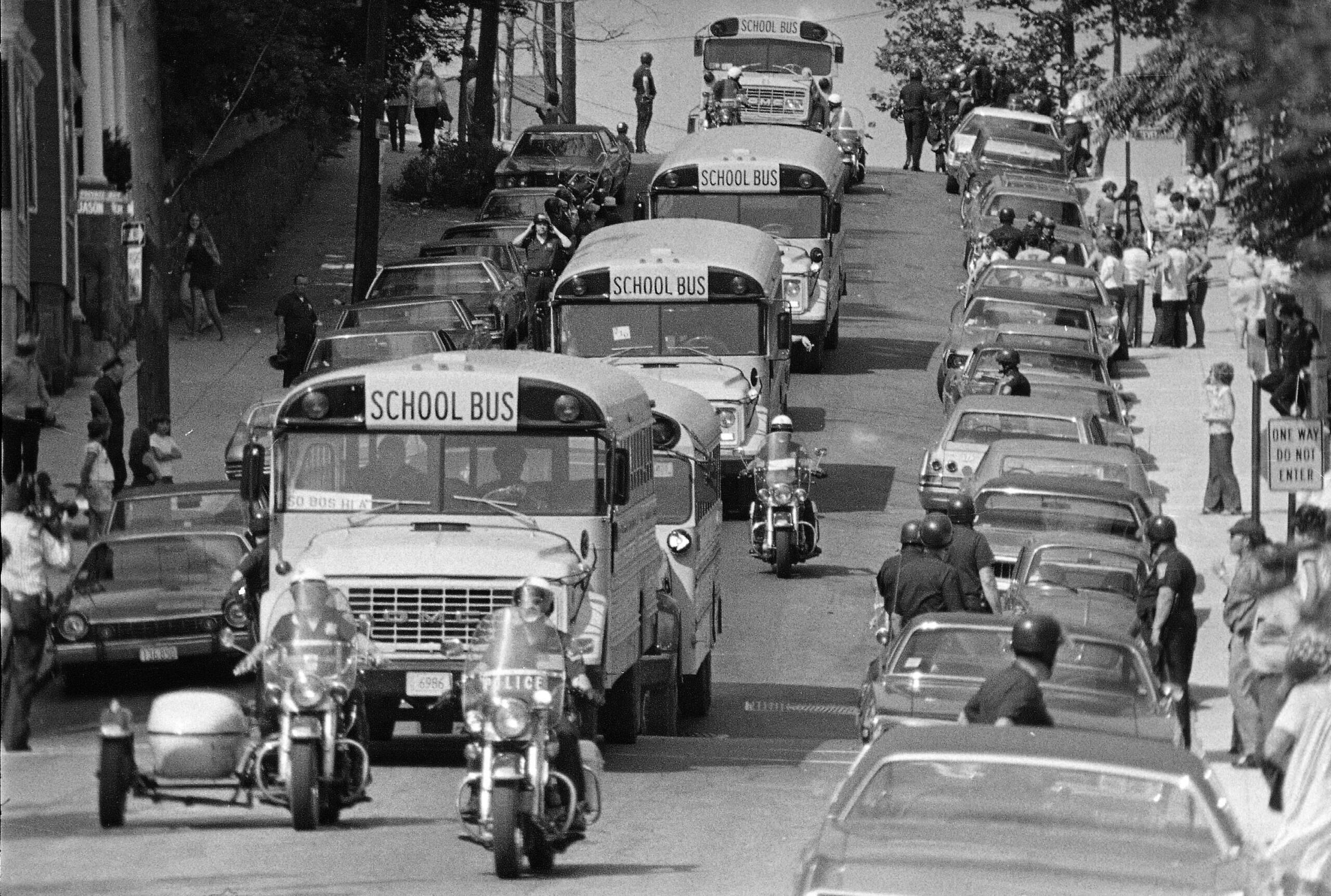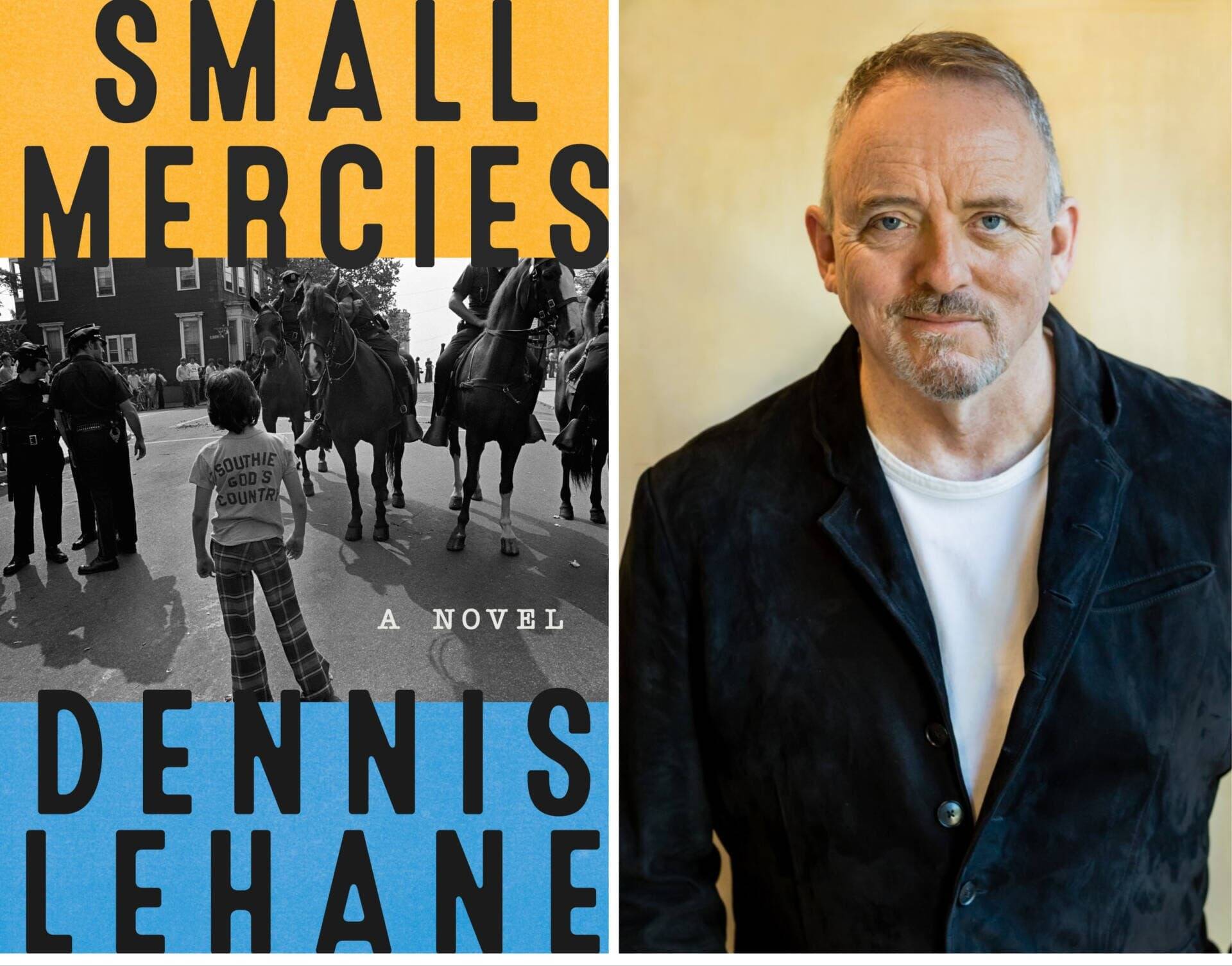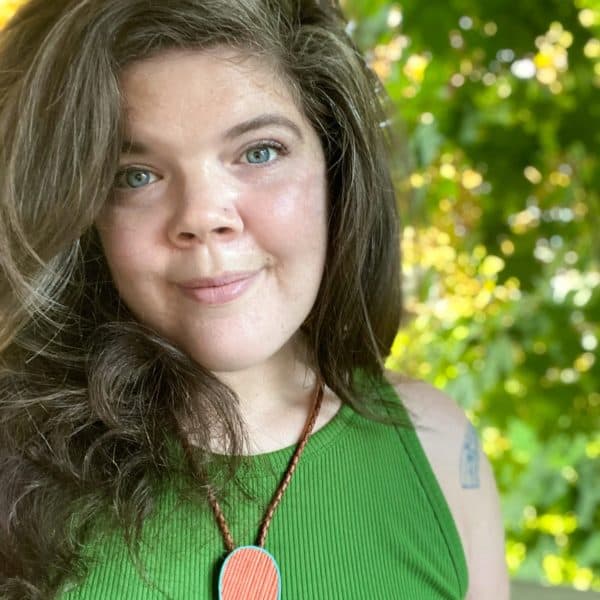Advertisement
Field Guide to Boston
Exploring busing in Boston through one mother-daughter relationship
Resume
The year 1974 was a crucible in Boston's history. It was a time marked by violent resistance to the forced desegregation of Boston schools. It's also the backdrop of the 2023 novel "Small Mercies" by best-selling local author Dennis Lehane.
The book centers around a South Boston mother, Mary Pat Fennessy, who is among the resistors to the integration of Black and white students in the city's schools. She embarks on a heroic journey to find her daughter, Jules, who vanishes on the same night a Black man is found dead under questionable circumstances. In her search for answers, Mary Pat must also undergo a less heroic internal journey by which she comes to terms with her own racism.
Lehane spoke with WBUR's Radio Boston in May 2023 about the events that inspired the novel and his own reflections on the anti-busing movement of the 1970s. We revisit that conversation as part of WBUR's Field Guide to Boston.

What exactly happened in 1974?
That year, Judge Arthur Garrity ruled in Morgan v. Hennigan that Boston public schools had to end segregation. He also determined the means by which this would be achieved: busing. White kids would be bused to what were predominantly Black schools, and vice versa. In the book, Mary Pat's daughter Jules is set to be bused to Roxbury High School.
(Controversially, weeks before busing went into effect, the suburbs were exempted from the ruling, thus only affecting poor, inner-city neighborhoods.)
In 1954, the U.S. Supreme Court concluded school segregation as unconstitutional in the landmark civil rights case, Brown v. Board of Education. But it would take two decades before that would reshape Boston. Key to the delay was a 1965 decision by the Boston School Committee to keep schools segregated.
What firsthand experience did the author have with anti-busing protests?
In one scene in the book, protestors set fire to life-sized dolls of Judge Garrity, Mayor Kevin White and civil rights lawyer William Taylor that are suspended on rope in front of the courthouse. Lehane said this closely mirrors something he witnessed when he was nine years old on Broadway in South Boston, a moment he said signaled the end of childhood.
"There'd always been this kind of tinderbox of rage inside of me and I never understood where it came from because I had a fine upbringing ... It was safe. It was warm. And I just couldn't point to any trauma," he said. "Then as I was writing the book, I was like, 'Oh my god, if I was nine and I saw all this ... How would I ever process that?' And that was the answer. That's where the anger came from."
He adds that that scene was also inspired by well-documented incidents from 1973 and 1974 like "KKK" spray painted on fences and the sides of buildings and signs reading "No [N-word] allowed" on people's windows.
Is the South Boston mother redeemed?
In Lehane's view, Mary Pat does not get any redemption. "She's not gonna get any feelings of, 'Oh, now that I've decided Black people are OK, then I should be given a trophy,' you know? I hate that attitude. And I've seen that attitude a lot."
She does, however, realize that not only is she racist but that, "whether advertently or inadvertently, [her racism] has led to all the carnage going on around her ..." Lehane said.
In the book, Mary Pat is not forgiven despite her realization, but Lehane says she does have the opportunity to "right the scales of justice" through her quest to get answers around her daughter's disappearance, and she takes it.
What inspired the central character?
Lehane said he was fascinated by the mothers who grew up in Boston's housing projects. "They were so tough and they produced these tough, tough kids, you know, because it was hard."
"At the time you just think, 'oh, it's a choice' then you realize, no, this is what poverty does to people. This is what absolutely no-opportunities does to people. So Mary Pat is tough because she had to be ... She had to learn how to fight for every single thing she got," he said.
What more is there to tell about the violence of the 1970s?
The anti-busing movement in Boston has been the subject of several widely read books, including "Common Ground: A Turbulent Decade in the Lives of Three American Families" by J. Anthony Lukas, and several film and theater adaptations. Each one offers a slightly different telling, and yet Lehane said the moment is one history may never finish writing.
"This rage and this vitriol is as old as time, and this hatred is just as prevalent now as it was then," he said.
One key feature that Lehane says he can appreciate about the 1974 is that, "though nastier in some ways," it was also "so much more honest."
"It's out front. It's right there. Nobody's codifying it," he said. This stands in stark contrast to the contemporary violence happening through anonymized posts on online message boards by people who present in public as "saying all the proper things."
This segment aired on September 19, 2023.


